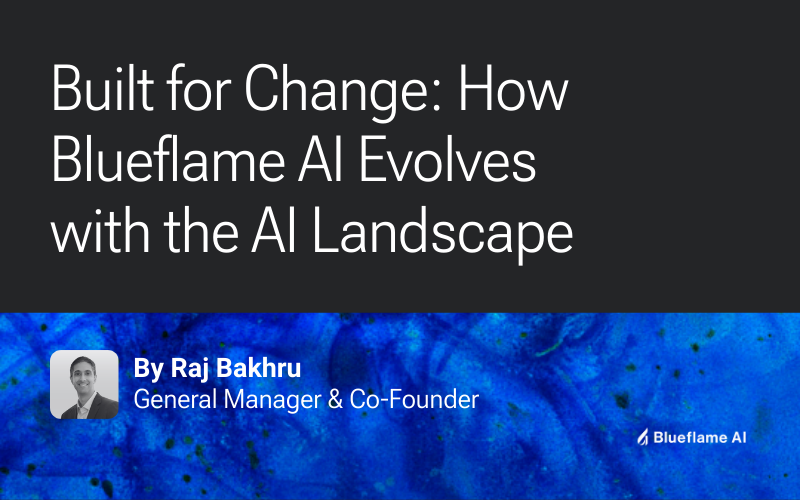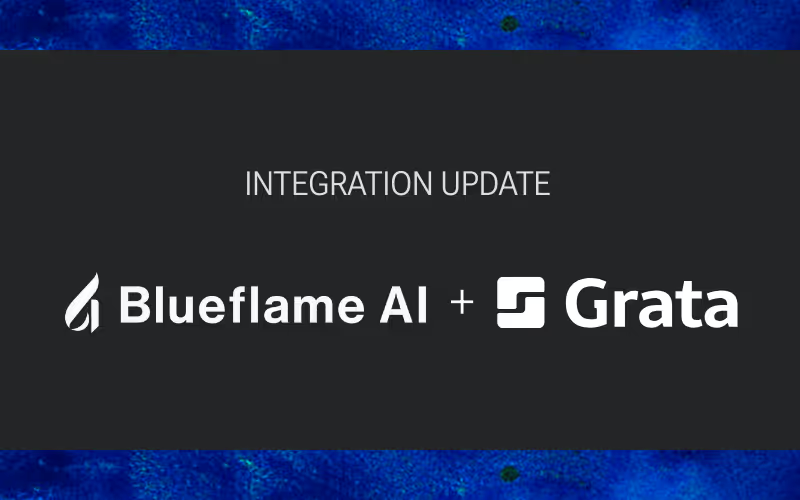2025 is shaping up to be a pivotal year for generative AI (Gen AI) adoption in private equity (PE), as more firms implement AI and recognize the potential ROI of AI.
A key step in AI implementation is identifying and prioritizing your firm’s AI use cases. In our recent webinar, experts from Bain & Company, Apax Partners, and Anthropic shared 10 AI use cases for private equity (PE) firms to drive efficiency, improve decision-making, and create value in 2025 and beyond.
Use Case #1: Knowledge management and enterprise search
According to Richard Lichtenstein, Partner and Chief Data Officer for Private Equity at Bain & Company, "Knowledge management is the [Gen AI] category that's by far the most mature." By integrating and analyzing both internal and external data sources, AI enables firms to unlock valuable insights from historical data, enhancing decision-making and strategic planning.
Benefits:
- Unified view of data: Consolidating data from internal sources like CRM systems and document archives provides a comprehensive view of past deals and client interactions, improving strategic insights.
- Comprehensive market understanding: Incorporating external data sources such as market trends and competitor analysis offers a thorough understanding of the market landscape, aiding in informed decision-making.
- Predictive insights: Identifying patterns and trends in historical data allows firms to generate predictive insights, informing future investment strategies and enhancing strategic planning.
Use Case #2: Expert network call analysis
AI simplifies the process of extracting key insights from expert interviews, making it easier for analysts to digest large volumes of qualitative data.
Benefits:
- Time savings: Automatically transcribing expert calls into text reduces manual effort and saves time, allowing analysts to focus on analysis rather than transcription.
- Concise summaries: Highlighting key points and themes from conversations provides concise summaries, capturing the essence of discussions and facilitating quicker understanding.
- Insight into expert perspectives: Analyzing the tone and sentiment of conversations offers insights into the expert's confidence and perspective, enhancing the depth of analysis.
Use Case #3: Rapid company research
AI accelerates the initial analysis of potential investment targets, allowing associates to evaluate more deals efficiently by reducing the time required from days to hours.
Benefits:
- Efficient data gathering: Quickly organizing data from financial statements and industry reports streamlines the research process, enabling faster decision-making.
- Competitive positioning: Comparing target companies against competitors highlights strengths and weaknesses, aiding in strategic evaluation and positioning.
- Comprehensive risk assessment: Identifying potential risks through historical data and market conditions provides a thorough risk profile, supporting informed investment decisions.
Use Case #4: IC memo preparation
Automating parts of the investment committee memo creation process with AI ensures consistency and accuracy while saving time.
Benefits:
- Consistent data integration: Populating standard memo sections with relevant data ensures consistency and reduces manual effort, enhancing efficiency.
- Streamlined content creation: Drafting narrative sections based on templates minimizes manual writing, saving time and ensuring accuracy.
- Enhanced clarity: Creating visual representations of key data points improves the clarity and impact of memos, aiding in effective communication.
Use Case #5: Streamline due diligence
AI streamlines the due diligence process, including automating responses to Due Diligence Questionnaires (DDQs), enhancing efficiency and accuracy.
Benefits:
- Efficient document analysis: Quickly scanning and analyzing documents identifies relevant information and flags potential issues, streamlining the review process.
- Automated DDQ responses: Generating responses to standard DDQs from existing databases reduces manual effort and ensures accuracy.
- Comprehensive risk profiling: Assessing risks through historical data and compliance records provides a thorough risk profile, supporting informed decision-making.
Use Case #6: Portfolio monitoring and optimization
By continuously monitoring portfolio companies, AI provides real-time insights and optimization recommendations, enhancing performance and driving value creation.
Benefits:
- Enhanced performance tracking: Automatically tracking key performance indicators (KPIs) across portfolio companies allows managers to quickly address deviations from expected performance, ensuring operational efficiency.
- Proactive predictive analytics: Forecasting future performance based on historical data and market trends helps firms anticipate challenges and seize opportunities, supporting strategic decision-making.
- Strategic optimization suggestions: Recommending operational improvements or strategic changes, such as cost reduction strategies or revenue enhancement opportunities, optimizes company performance and maximizes returns.
Use Case #7: Market trend analysis
AI's ability to analyze vast amounts of market data helps firms identify emerging trends and shifts, enabling informed investment decisions.
Benefits:
- Comprehensive data aggregation: Gathering and synthesizing data from diverse sources, including news articles, social media, and financial reports, provides a holistic view of market dynamics, aiding strategic planning.
- Opportunity-driven trend identification: Detecting patterns and trends in the data highlights emerging sectors or technologies, presenting new investment opportunities for firms.
- Informed scenario analysis: Simulating different market scenarios helps firms understand potential impacts on their investments, allowing them to adjust strategies proactively.
Use Case #8: Investor relations and reporting
AI simplifies the process of preparing reports and communications for investors, making them more accurate and timelier, which helps build stronger relationships with stakeholders.
Benefits:
- Increased efficiency and consistency in reporting: By automating the compilation and generation of regular investor reports, AI reduces the manual effort required and ensures consistency.
- Enhanced investor engagement and satisfaction: Tailoring communications to individual investors based on their preferences and interests, AI helps to improve engagement and satisfaction.
- Deeper understanding of investor concerns and expectations: AI analyzes feedback and sentiment from investor communications and meetings, providing valuable insights into what investors are concerned about and what they expect.
Use Case #9: Talent management and recruitment
AI enhances talent management and recruitment processes, helping firms attract and retain top talent, which is crucial for sustained growth.
Benefits:
- Streamlined candidate screening: Automating the screening of resumes and applications identifies the most qualified candidates efficiently, ensuring a strong talent pipeline.
- Focused employee performance analysis: Analyzing performance data to identify high performers and areas for development supports talent retention and growth, enhancing organizational capability.
- Strategic workforce planning: Forecasting future talent needs based on business growth and market trends helps firms plan recruitment and training efforts effectively, aligning talent strategy with business objectives.
Use Case #10: Risk management and compliance
AI enhances risk management and compliance processes by automating the identification and assessment of potential risks, ensuring firms remain compliant with regulatory requirements and minimizing exposure to financial and operational risks.
Benefits:
- Automated risk identification: AI can scan and analyze vast amounts of data to identify potential risks, such as financial discrepancies or compliance issues, allowing firms to address them proactively.
- Regulatory compliance monitoring: By continuously monitoring regulatory changes and assessing their impact on portfolio companies, AI helps firms stay compliant and avoid penalties.
- Fraud detection: AI algorithms can detect unusual patterns or anomalies in financial transactions, helping firms identify and prevent fraudulent activities, thereby safeguarding assets and reputation.
Conclusion
AI is set to change the private equity industry in 2025 by improving efficiency, accuracy, and decision-making. The use cases in this post show how AI can be applied in various areas, such as simplifying due diligence, enhancing portfolio performance, and improving investor relations and talent management. By using AI, private equity firms can gain a significant advantage, allowing them to make better investment decisions, reduce risks, and create more value.
Although AI adoption in financial services lags behind most other industries, it's important for private equity firms to embrace AI technologies to remain competitive. Moving forward with AI not only prepares firms for success in 2025 but also lays the groundwork for continued growth and innovation in the future.
Blueflame eBook for AI Implementation Success
Our eBook, "Leveraging AI in Alternative Investment Management: Strategies for Implementation and Success," contains practical steps and expert insights to guide you through every step of AI adoption to ensure success from day one and beyond.

.avif)
.png)

